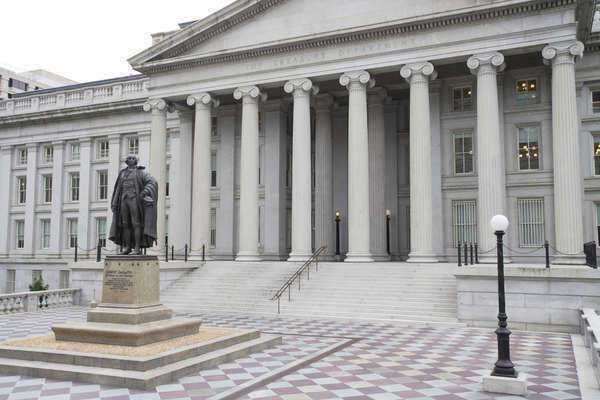Legal Holdings of the Federal Government
Legal Holdings of the Federal Government: An Overview
The federal government is the largest legal entity in the United States, with a vast array of legal holdings that span across all levels of government.
Its legal holdings serve as a foundation upon which the government conducts its functions and delivers services to citizens. They also play a vital role in shaping public policy and enforcing laws.
In this article, we will explore the legal holdings of the federal government, taking a closer look at a range of topics such as land ownership, intellectual property, mineral rights, and more. We will delve into each of these areas, examining how they impact government operations and affect the lives of everyday citizens.
Land Ownership by the Federal Government
The federal government is the largest landowner in the United States, with jurisdiction over roughly 640 million acres of land. This land is managed by various agencies, including the Bureau of Land Management (BLM), the National Park Service (NPS), the U.S. Fish and Wildlife Service (USFWS), and the United States Forest Service (USFS).
The BLM is responsible for managing approximately 245 million acres of public land, primarily located in western states such as Arizona, California, Nevada, New Mexico, Utah, and Wyoming. The BLM's primary mandate is to balance the use of natural resources with the conservation of ecosystems and wildlife habitat. It does this by issuing grazing permits, leasing parcels for oil and gas exploration, and issuing mining claims.
The NPS manages approximately 84 million acres of public lands in the form of national parks, monuments, historical sites, and other protected areas. Its mandate is to preserve and protect significant natural, historical, and cultural resources for the enjoyment of both current and future generations. The NPS is responsible for the Grand Canyon, Yellowstone, Yosemite, and many other iconic destinations throughout the country.
The USFWS manages approximately 89.1 million acres of land, primarily for the protection and conservation of fish and wildlife species and their habitats. It also oversees the implementation of the Endangered Species Act, which is designed to protect listed species and their habitat from harm.
The USFS manages approximately 193 million acres of public lands, primarily in national forests and grasslands across 44 states. Its mandate is to maintain healthy ecosystems and promote sustainable use of forest resources for the benefit of present and future generations.
Beyond this, the federal government also maintains a large number of other land holdings throughout the country, including military installations, Indian reservations, national wildlife refuges, and more.
Intellectual Property Rights
The federal government also holds a significant portfolio of intellectual property rights, including patents, trademarks, and copyrights. These rights are essential for the protection of innovative ideas and creative works and are crucial to promoting innovation, creativity, and economic growth.
The United States Patent and Trademark Office (USPTO) is responsible for granting patents and trademarks to inventors and businesses. It is also responsible for maintaining a database of all active patents and trademarks and enforcing the laws governing their use.
The Copyright Office, which is part of the Library of Congress, is responsible for administering and registering copyrights for creative works such as books, music, and art. It also maintains a database of all copyrighted works and provides guidance on copyright law.
In addition to these rights, the government also maintains an extensive database of scientific and technical information. The National Institutes of Health (NIH), for example, maintains an online repository of scientific articles and research studies that are available for public use. This information is critical for promoting scientific advancement and aiding research efforts.
Mineral Resources
The federal government is also responsible for managing access to the country's valuable mineral resources. This includes mineral rights, which are the legal rights to extract and sell minerals located on public land.
The Department of the Interior is responsible for managing this process, primarily through the Bureau of Land Management and the U.S. Geological Survey. These agencies are responsible for leasing mineral rights to companies, monitoring mineral extraction activities, and ensuring compliance with environmental regulations.
The federal government owns vast reserves of minerals, including coal, oil, and natural gas. These resources are critical to the country's energy security and economic growth. However, their extraction and use can also have negative impacts on the environment, including air and water pollution, habitat destruction, and climate change.
Other Legal Holdings
In addition to the areas listed above, the federal government also maintains legal holdings related to a range of other issues, such as:
- Immigration: The federal government has the primary responsibility for enforcing immigration laws and regulating the entry of non-citizens into the country.
- Healthcare: The federal government has a significant role in regulating the healthcare industry, through agencies such as the Food and Drug Administration (FDA) and the Centers for Medicare and Medicaid Services (CMS).
- National Security: The federal government has the responsibility for protecting the country's security from external threats. This includes maintaining a strong military presence, maintaining intelligence agencies, and protecting critical infrastructure.
- Taxes: The federal government is responsible for collecting taxes from citizens and businesses. The Internal Revenue Service (IRS) is responsible for administering the tax code and enforcing compliance with tax laws.
Final Thoughts
The federal government's legal holdings are vast and diverse, impacting every aspect of our lives. They allow the government to carry out its essential functions and ensure that citizens are protected, laws are enforced, and essential services are delivered. The information provided in this article is just a small glimpse into the complex legal framework that underpins our government, and we encourage readers to delve deeper into these topics to gain a better understanding of how the government operates.
